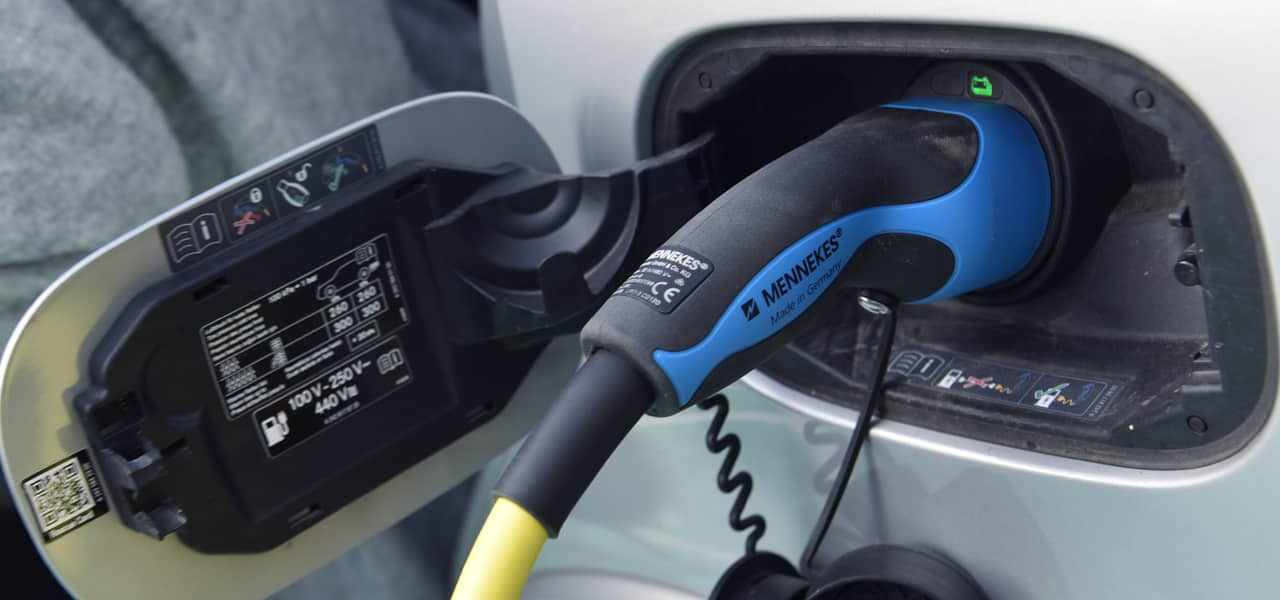Transportation accounts for a significant portion of the UK’s greenhouse gas emissions, with road transport being the most important contributor. It is crucial to transform mobility patterns to achieve net-zero emissions and prioritise electric vehicles (EVs) in the road transport sector. Yet, the high upfront costs of new EVs have impeded their accessibility for many households. In this context, the used EV market is vital in democratising the shift to net-zero transportation — analysis conducted by Green Finance Institute offers solutions to boost consumer trust and accelerate secondhand EV sales.
The Green Finance Institute’s research sheds light on the untapped potential of the UK’s pre-owned EV market.

Electric vehicles research key findings:
- Strong Demand for EVs: The research indicates that 61% of non-EV drivers in the UK, equivalent to over 25 million drivers, are willing to buy an EV today.
- Massive Demand for Used EVs: Among those willing to buy an EV, 73% expressed their preference for a used EV; this represents a significant opportunity to scale up EV uptake.
- Barriers to Adoption: Approximately 27% of drivers, equivalent to 6.75 million UK drivers, have concerns and knowledge gaps that need addressing to convince them to switch to a used EV.
- Battery Longevity Concerns: The primary concern among hesitant EV buyers is battery lifespan. Introducing battery health certificates and extended battery value guarantees were identified as critical solutions to boost confidence.
- Affordability Concerns: Upfront costs of used EVs remain higher than internal combustion engine (ICE) vehicles, discouraging potential buyers. Total Cost of Ownership (TCO) calculators and salary sacrifice schemes can help address affordability concerns.
- Charging Infrastructure: Access to reliable charging infrastructure is a crucial factor influencing consumer confidence. Increasing the availability of charging infrastructure and providing transparency on charging costs can encourage EV adoption.
Potential solutions to consumer EV anxieties:
- Battery Health Certificates & Guarantees: Standardised battery health certification schemes and extended battery value guarantees to instil confidence in the remaining battery health of used EVs. These solutions are crucial for both buyers and dealerships.
- Total Cost of Ownership Calculators: TCO calculators provide a holistic view of owning an EV, including purchase costs, maintenance, and charging/refuelling expenses. Standardisation of metrics and definitions is necessary to enhance consumer trust.
- Salary Sacrifice Schemes: Collaborating with employers to offer salary sacrifice schemes can significantly reduce monthly costs for EVs, making them more financially viable for a more significant number of drivers.
- Multiple Products in One Monthly Payment: Bundling various products, such as the vehicle and home charging installation, into a single monthly payment simplifies the customer journey and reduces upfront costs.
- Increasing Public Charging Infrastructure: Expanding public charging infrastructure is essential to alleviate concerns regarding access to charging points. Reducing the VAT rate on public charging and offering affordable financing options for home charging installation can further support EV adoption.
Creating a booming used EV marketplace
Transitioning to EVs is critical to achieving net-zero emissions in the transportation sector. The research conducted by the Green Finance Institute highlights the immense potential of the used EV market. It identifies key barriers and solutions to accelerate EV adoption. Battery health certificates, TCO calculators, salary sacrifice schemes, and improved charging infrastructure can address concerns related to battery longevity, affordability, and charging accessibility. By implementing these solutions, we can boost consumer confidence and democratise the transition to EVs, making it accessible and affordable for all. The thriving used EV market and supportive measures are pivotal in achieving sustainable growth to a net-zero transport system.
View full report here: